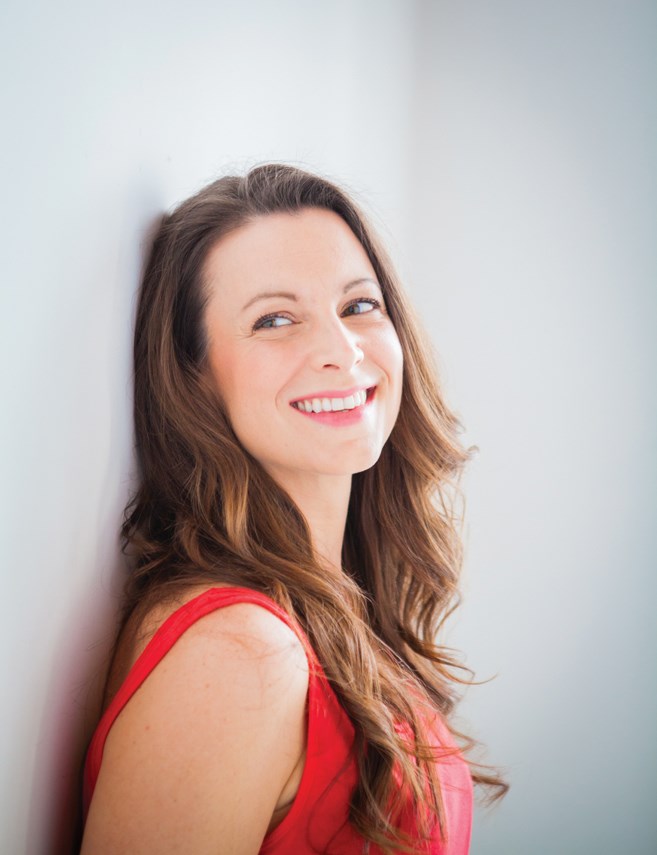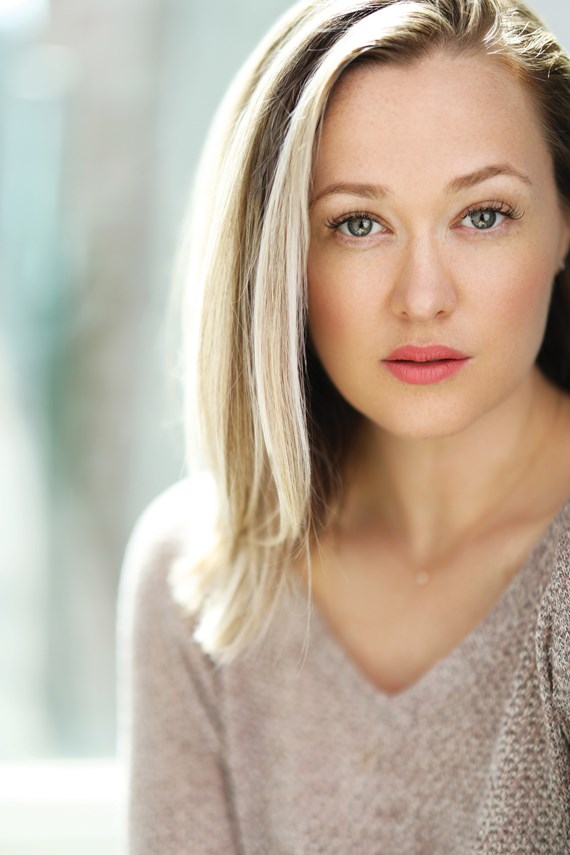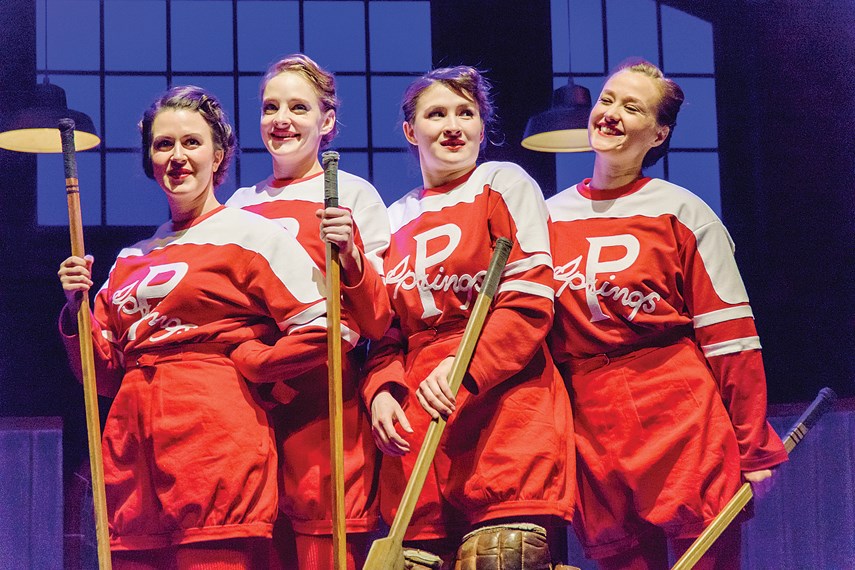Glory by Tracey Power, Grosvenor Theatre at Kay Meek Arts Centre, West Vancouver, March 29 at 7 p.m. and March 30 at 3 p.m. (kaymeek.com/events/glory) plus, April 4–13 at Gateway Theatre, Richmond (tickets.gatewaytheatre.com).
The moment playwright Tracey Power laid her eyes on a historical photograph of a Canadian women’s ice hockey team in a coffee table book, she was inspired to tell the story of how that moment came to be.
She asked herself, “How can we tell this story in an entertaining way and in a way that’s going to touch people and get people excited [and for them to] learn a little bit about our country’s history?”
The play speaks to Canada’s past regarding exclusion of races and cultures as well as the fight for equal rights between men and women. “I think it’s good [to] remember that we have some dark parts of our history that we don’t always like to talk about. And I think it’s good to talk about it,” Power says.
Power grew up on Vancouver Island and moved to Vancouver 20 years ago which has been her home base ever since. Her career started as an actor and then progressed into writing and directing.
Glory’s story is inspired by the two Ranscombe sisters, Hilda and Nellie, who began an ice hockey team in Ontario with another pair of sisters, Marm and Helen, during the Great Depression. The women played baseball during the summer and wanted to continue their passion for sports all year long.
Along with their triumph within the ice hockey world, the story also revolves around their lives, their coach and their struggles as women wanting to participate in a male-dominated sport.

To Power though the play is about more than sport – it’s about passion. “Passion for what you want to do in your life, passion for beating all the odds.”
Weaved into all the personal elements, the play also focuses on the struggles of the country during the Depression with the Second World War approaching.
Finding the right actors to play the complex characters she created was an important step for Power. Along with the demanding physicality of the roles two of the women on the team are Jewish.
Vancouver actor Kate Dion-Richard, who plays Helen Schwartz in Glory, has a closer personal tie to Canadian ice hockey history. She grew up idolizing Montreal Canadiens’ icon Maurice “Rocket” Richard, a distant family cousin.

Dion-Richard grew up as a dancer and transitioned into acting as she grew older. She moved to London in 2006 to obtain a masters at the Royal Central School of Speech and Drama before moving back to Vancouver.
She says Glory has an important story to tell and it shows the resilience of Canadians during the Great Depression.
“It’s just really important to know that part of our history, because I feel that we’re still fighting for that equality and recognition today. Especially in sports [and] in women’s sports,” she says.
Working with Power has been incredible, according to Dion-Richard. “She’s just an absolute dream to work with because she is also an actor, so she gets it. She knows how to write for women, athletes, for actors. She’s just really inspirational.”
The connection that Glory’s story has to Canadian history and culture is poignant for both Power and Dion-Richard.
Dion-Richard says that a lot of people can relate to the what they see on stage. “Bridging the gap between theatre and sport is amazing,” she says.
“I think Glory is unique in what it’s trying to do and what it is doing,” Power says.
The production opens at Kay Meek Arts Centre on March 29 and 30 and continues on to Gateway Theatre in Richmond from April 4 to 13. It then tours through other parts of B.C. before moving to Ontario for a 14-week run.



